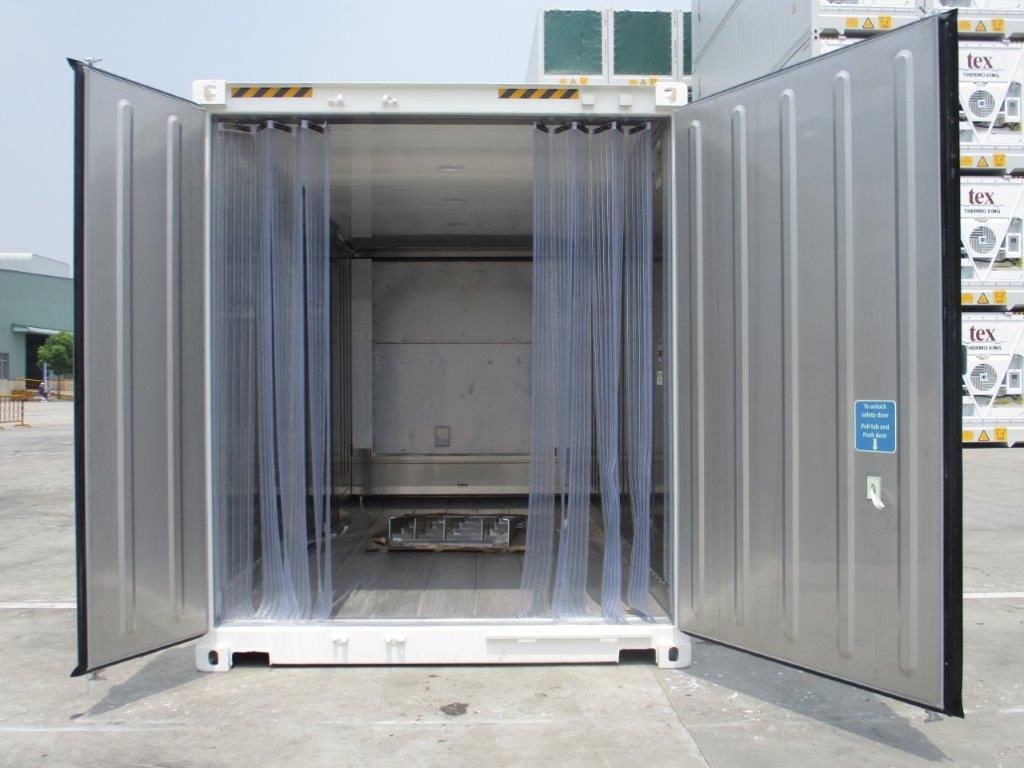Mobile Refrigeration Cells for Optimal Wine Production Processes
If it is true that climate conditions are essential factors for a successful vintage, it is likely that controlling temperature and humidity at optimal levels would greatly aid in winemaking processes. This was the reasoning behind the idea of using mobile refrigeration cells in winemaking.
The availability of controlled temperature environments, even if temporary, allows for better control over fermentation processes, ensuring optimal results without being affected by excessively hot summer temperatures. Additionally, it enables efficient management of the logistics involved in various production activities, ensuring that the intermediate or finished product remains consistently stored in an environment with ideal temperature and humidity levels.

Our twenty-year experience in renting refrigeration cells to wine-producing companies has provided us with valuable insights into the usefulness of refrigeration cells in winemaking. We can summarize some essential advantages as follows:
- Immediate temperature reduction of the harvested grapes after picking: This is considered the most critical phase, as poor temperature management can compromise the entire production. Working with grapes at temperatures above 22°C (71.6°F) can accelerate fermentation processes, interfere with enzymatic processes, reduce wine quality, and deviate from desired organoleptic and olfactory characteristics.
- Increased productivity in the winery: It has been observed that reducing the temperature of the grape must allows for faster and more compact settling of the sediments, resulting in a greater production of high-quality intermediate product for subsequent phases of winemaking.
- Quality contribution and lower costs compared to dry ice and cooling coils: As known, dry ice does not uniformly cool the harvested grapes and is an expensive solution that can damage the crop, causing “burns” on the grape clusters it directly contacts. Cooling coils, when immersed in steel vats, create temperature variations, with lower temperatures around the coil and higher temperatures as one moves away from it, thus leading to inconsistent fermentation and quality.
- Optimization of installation and removal processes: Having access to such cells also allows for organizing the purchase of vine cuttings during periods of particular convenience and managing their planting during the most suitable and stable climatic periods by using controlled temperature conditions.
- Cryo-selection: In the production of “sweet” wines such as passitos, the refrigeration cell, typically set at -20°C (-4°F), enables the selection of grapes with a higher sugar content (suitable for producing these wines) compared to those with a higher percentage of water.
- Withering of grapes: In processes involving withering, there is an opportunity to quickly reduce the temperature of the harvested grapes or achieve faster withering by managing a higher temperature and extracting moisture.
- Storage at controlled temperature: The refrigeration cell is inherently an environment where wine bottles can be stored at optimal temperature and humidity levels, ensuring the required quality standards. Our refrigeration cells thus represent a temporary backup facility.
Refrigeration cells are therefore fundamental tools in winemaking for maintaining optimal temperatures during fermentation and wine storage. Also known as refrigerated cellars, these cells are specifically designed to provide precise and constant temperature control within an isolated environment.
During fermentation, the grape must is transferred to containers such as fermentation tanks or stainless steel vats. At this stage, maintaining a specific temperature is crucial for controlling the fermentation process and preserving the desired organoleptic characteristics in the final wine.
Refrigeration cells allow for achieving and maintaining low or controlled temperatures, typically between 10°C and 20°C (50°F and 68°F), depending on the specific fermentation requirements. This can be crucial for regulating the fermentation rate, preventing unwanted bacterial activity, and preserving volatile aromas.
Refrigeration cells are also used for wine storage after fermentation. Precise temperature control is crucial for maintaining wine stability over time and preserving its quality. Storage at controlled temperatures helps slow down the aging process and prevents undesirable alterations.
The harvest period varies from grape to grape and from region to region, but in Italy, it typically spans from July to October. If you own an agricultural farm or a winery, you are likely preparing for the harvest season.
If you would like more information on how our mobile refrigeration cells can support you in the winemaking process, particularly during the harvest period, please feel free to contact us.
We provide tailored solutions for all needs, both in terms of rentals and purchases.